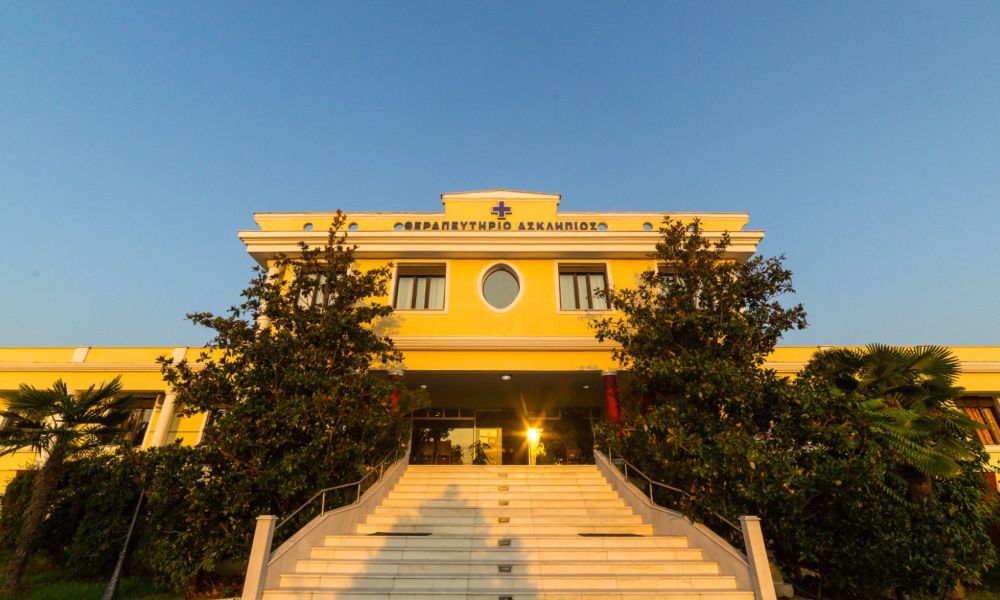Psychiatrist and Director of “Asklipios SA”, Psychiatric Clinic of Veria
Going through a difficult period for everyone, with measures to reduce the pandemic have radically changed our habits and our daily lives, many people try to manage the new reality, social alienation, exclusion, the consequences of the pandemic. Especially those who care in the midst of this situation, people who belong to vulnerable groups, such as people with Dementia, Alzheimer’s, etc. Dr. Emmanuel Deres, Psychiatrist and Director of the “Asklipios SA” – Psychiatric Clinic of Veria, gives us mental health advice for the pandemic period, useful for the daily life of the general population and vulnerable groups that need special care.
How can we protect ourselves mentally from the coronavirus and deal with the negative symptoms?
We try to face not only the risk of disease but also the loss of our daily lives as we knew it! We have lost our sense of security, our freedom, our direct physical contact with our fellow human beings, we have lost our imaginary immediate future, we have even lost the opportunity to contribute. It makes sense to experience sadness, anger, confusion, fear and anxiety.
We know from recent research, in previous epidemics such as SARS, H1N1 flu and Ebola, that the list of negative psychological effects of the phenomenon of quarantine and confinement is long.
So we can protect ourselves from these negative psychological effects by following the following:
- It is important to organize our daily activities on time. How much time will we spend on the computer, TV or cooking (experiment with new recipes)
- To add daily for at least half an hour some physical exercise that pleases us.
- Do not use smoking, alcohol or other substances to manage our emotions.
- If we are feeling emotionally charged, it is important to talk to a mental health professional or your doctor.
- It would be good to limit the time we and our family spend watching the media, because they upset us.
- Let’s start each day with positive thoughts, thanking ourselves and our fellow human beings for fighting the virus and for life. Let us feel the gratitude we have for our health and the people we love very close to our hearts. Let’s not forget what really has value in our lives.
The period of confinement will pass since it is something temporary!
Remember distance does not kill. Silence kills!
The power of communication and its positive effect on the human psyche is enormous, especially during the period of confinement.
Finally, remember that healthcare workers need specialized psychological care. They are often stigmatized and need to be supported by their colleagues in their work environment.
“Calmness, seriousness and professionalism are needed.”
How important is COVID-19 in our pandemic diet?
It is known that diet plays a very important role in the functioning of our immune system. Caregivers and patients should be properly nourished, with meals rich in nutrients and vitamins, to strengthen their body during this special and difficult time of the pandemic.

For this reason, at the “Asklipios SA” Psychiatric Clinic of Veria, we have placed great emphasis on nutrition from the first moment of our operation and we have taken care to strengthen this season in order to physically shield the immune system of the patients we care for.
What happens to dementia patients and how should they be managed in the midst of a COVID-19 pandemic?
Patients with dementia belong to the so-called “vulnerable groups” due to their advanced age and the coexistence usually with other diseases. People with Alzheimer’s disease or other forms of dementia are often unable to understand and follow the guidelines for preventing COVID-19 infection. They may forget to wash their hands, refuse to wear a mask or keep their distance.

For this reason, all the people who take care of such people at home, but also at the Asklipios SA, Psychiatric Clinic of Veria, in the geriatric ward, as caregivers of these people we are responsible for the observance of the rules of personal hygiene but also for the close supervision, so that patients observe precautionary measures on a daily basis.
We should therefore inform and educate in simple words the early stage patients and to the extent that they are able to understand the severity of the condition. We recommend that you avoid exposure to a lot of informative media stimuli.
Finally, confinement at home, isolation and reduced communication with people and all the changes in their daily lives can cause additional stress, irritability, irritability and physical discomfort in people with dementia. In the more advanced stages, symptoms such as hyperactivity, delirium and hallucinations may even worsen.

To manage these symptoms, the care we should offer our dementia patients and the interventions we should use are pharmaceutical, according to the instructions of experts, but also non-pharmaceutical, such as enjoyable alternative occupational therapy activities, physical exercise- physiotherapy but also companionship with people of the same age.
Meeting the basic needs of people with dementia is especially important.
We take care of the obvious:
- Getting proper medication
- Balanced diet and adequate hydration
- Maintaining personal hygiene
- Daily pleasant employment and physiotherapy
- Proper sleep
What is the management of patients with Parkinson’s disease in the midst of a COVID-19 pandemic?
As far as we know, Parkinson’s disease itself does not seem to increase the risk of contracting the virus on its own, but factors such as the patient’s age, the stage of the disease and the symptoms play an important role in this period. Patients with advanced disease have an increased risk of respiratory infections.
In case of COVID-19 infection, it is possible that the symptoms of Parkinson’s disease and the response to the medication will worsen. For this reason, patients with Parkinson’s disease are advised to stay at home and follow the rules of hygiene.
In case of worsening of their symptoms, it is recommended that their treatment take place in a highly protected environment.

Asklipios SA, Psychiatric Clinic of Veria, taking into account these difficult times we are experiencing as Greeks and wanting to help, offers a free telephone line of psychological support that you can contact and ask for help at:
23310 78200




